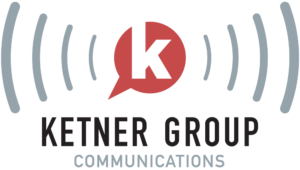 I’m not going to lie. Sometimes my job is hard. In fact, it can be downright frustrating and still causes me to shed a few tears now and then. Twelve years working in public relations has taught me to have thick skin and to keep pushing forward when things get tough, but I still have days when I can’t wait to get home and pour myself a tall glass (or two) of my favorite white wine. And I’m not the only one who feels this way, either. According to The Huffington Post, public relations is ranked one of the top ten most stressful jobs in America, right alongside our friends in advertising, commercial pilots, architects and EMTs. PR executives must consistently prove our worth to clients, for fear if we don’t, we’ll get the boot. (We must also be perfect spokespersons and pitchers for the media, for fear of being “that PR person” – but that is another topic all together!)
I’m not going to lie. Sometimes my job is hard. In fact, it can be downright frustrating and still causes me to shed a few tears now and then. Twelve years working in public relations has taught me to have thick skin and to keep pushing forward when things get tough, but I still have days when I can’t wait to get home and pour myself a tall glass (or two) of my favorite white wine. And I’m not the only one who feels this way, either. According to The Huffington Post, public relations is ranked one of the top ten most stressful jobs in America, right alongside our friends in advertising, commercial pilots, architects and EMTs. PR executives must consistently prove our worth to clients, for fear if we don’t, we’ll get the boot. (We must also be perfect spokespersons and pitchers for the media, for fear of being “that PR person” – but that is another topic all together!)
We must educate clients who don’t understand that it is not always about how many clips you get, but also includes the importance of developing and nurturing relationships with media, analysts and industry though leaders. We must be all things to our clients: spokespersons, advisors, cheerleaders, editors, trainers, devil’s advocates, educators, writers, lead generators, pitchers, networkers, brand ambassadors, sometimes psychologists, travel companions, and dare I say, friends.
 So, imagine my surprise when I read a CNBC report about the Top 10 Hated Jobs in America (as surveyed by CareerBliss). Public relations was nowhere to be found on the list, instead, it was marketing managers and VPs of sales and marketing. According to the survey, directors of sales and marketing (who typically manages the company budget, public relations and employee training) reported the second-highest level of job dissatisfaction due to “lack of direction from upper management and an absence of room for growth.”
So, imagine my surprise when I read a CNBC report about the Top 10 Hated Jobs in America (as surveyed by CareerBliss). Public relations was nowhere to be found on the list, instead, it was marketing managers and VPs of sales and marketing. According to the survey, directors of sales and marketing (who typically manages the company budget, public relations and employee training) reported the second-highest level of job dissatisfaction due to “lack of direction from upper management and an absence of room for growth.”
I’ve been working in the PR agency world for my entire career, so I am not naïve to think that marketing managers and directors have it easy. I know they don’t.
Their superiors are constantly breathing down their necks to generate more leads, drive revenue, convert leads and monetize all marketing activities – including, dum dum dum – public relations. When you think about it, we as PR practitioners don’t have it so bad. If we lose a client, we work hard to bring in new business. For our clients (aka marketing managers and directors) who don’t perform as expected, there is a high chance they may be replaced. Talk about stress!
When we were kids and talked about what we wanted to be when we grow up, I bet that none of us ever wished to be in a job that was ranked one of the most stressful jobs in America, or one of the top 10 most hated jobs in the country. No way! We all wished for jobs that were fun, glamorous, exciting, heroic, and that would make a difference. If you take the stress away from a PR or marketing job, it can be all those things!
I love what I do, even on days when I want to wring necks. You can’t beat that feeling of accomplishment when your client lands a cover story or receives high accolades from a top industry analyst. And, I bet that deep down inside our clients truly love what they do, too. I can only imagine the feeling they must get when that direct marketing campaign results in a customer win, or when their CEO gets the invitation to give the keynote at a prestigious industry event.
So, PR folks, give your clients the benefit of the doubt when they slap you on the wrist for that missed editorial opportunity because it is highly likely that they are also getting that slap, too. And try not to take things too personally, because I honestly believe that is where the stress sets in – and I’m telling myself this, too! You have to remember that our clients are trying to do the very best job they can for their companies. They hired YOU because they think you can do the best job at promoting their business, product, or service. Show them that you can get that feature story or land that hard to get interview with USA Today or The New York Times. There will be missed opportunities, but what your clients will (and should) remember is how you moved on from the situation and made it right.
